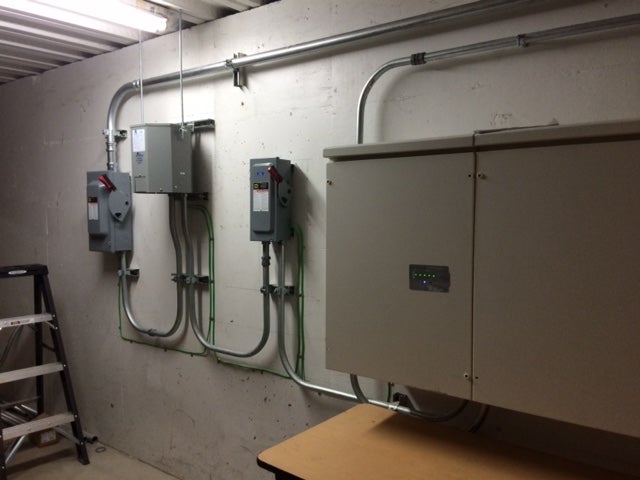Colorado affirms energy customers’ right to store energy

Solar energy provides consumers with the ability to generate their own electricity. A new Colorado law ensures they have the right to store it. Signed in March, the bill (SB 9), secures consumers’ ability to “install, interconnect, and use energy storage systems on their property”. This law, as well as a similar one passed in Nevada, has important ramifications for solar owners. It makes the decision to adopt energy storage, including storage with solar, not merely a privilege for which utilities can charge a higher rate, or can create other obstructions to interconnection, but a basic right.
“Just as customers have a right to reduce their consumption of grid-supplied electricity with energy efficiency, energy conservation or demand response, we also believe the ability to generate and to store energy is a right of every utility customer,” said Sean Gallagher, Vice President of State Affairs for the Solar Energy Industries Association (SEIA). “SB 9 ensures this is the case for battery storage.” Gallagher noted Colorado has been a leader in renewable energy, as Coloradans demonstrated by passing America’s first Renewable Energy Standard by ballot initiative.
SB 9 comes after Xcel Energy, Colorado’s largest utility, unsuccessfully proposed different rates for customers with battery systems. Solar advocates strongly opposed this move. The new law should help the Colorado Public Utilities Commission (PUC) create rules on integrating battery systems into the electrical grid.
A crucial feature of the new law is that utilities cannot require the customer to install a meter in addition to the one that measures net metering, for the purpose of monitoring storage.
“Additional metering has been used by utilities to peek behind a customer’s meter to monitor their usage of the energy that they self-supply,” Gallagher said. “This is not justified for any technical or policy reasons.” He also pointed out that multiple meters can be very expensive for customers.
Gallagher agrees with the language of the new legislation, which asserts that it will benefit all customers, not just solar owners. Energy storage can enable reductions in peak demand on the grid, he explained. This can potentially lower electricity rates for customers in general by deferring the need for expensive power infrastructure, or avoiding it altogether.
Sara Birmingham, Senior Director of State Affairs for SEIA, believes that SB 9 will lead to additional investments in microgrids. Microgrids are sub-sections of the electric grid that are designed to continue functioning on their own should the larger electric grid lose power. Birmingham pointed out that the language of the new law states that distributed resources like microgrids represent a “reliable and efficient” source of electricity in the face of service interruptions.
“This statement makes clear that greater utilization of microgrids, which can operate during interruptions in electric supply, is in the public interest,” Birmingham said. She hopes that policymakers will work to remove barriers to microgrid adoption, such as proposing a more progressive rate design and facilitating interconnection.
Gallagher advised solar supporters interested in pushing for similar laws elsewhere to learn how to educate policymakers and get all sides to sit down together to identify areas of conflict and work out solutions.
“Maximizing solar is only one benefit of energy storage, but that argument tends to get overly politicized,” said Gallagher. “The message that tends to resonate more broadly is the fact that energy storage can benefit all customers by lowering utility rates and strengthening the reliability and resiliency of the electric grid.”
“We’re seeing a significant, hopeful transition in states like Colorado and Nevada, where consumers now have the right, under law, to access affordable, reliable clean energy options like home solar and batteries,” said Alex McDonough, Vice President of Public Policy for solar provider Sunrun. “All states should guarantee the right to clean energy that’s created by the people, for the people.”
